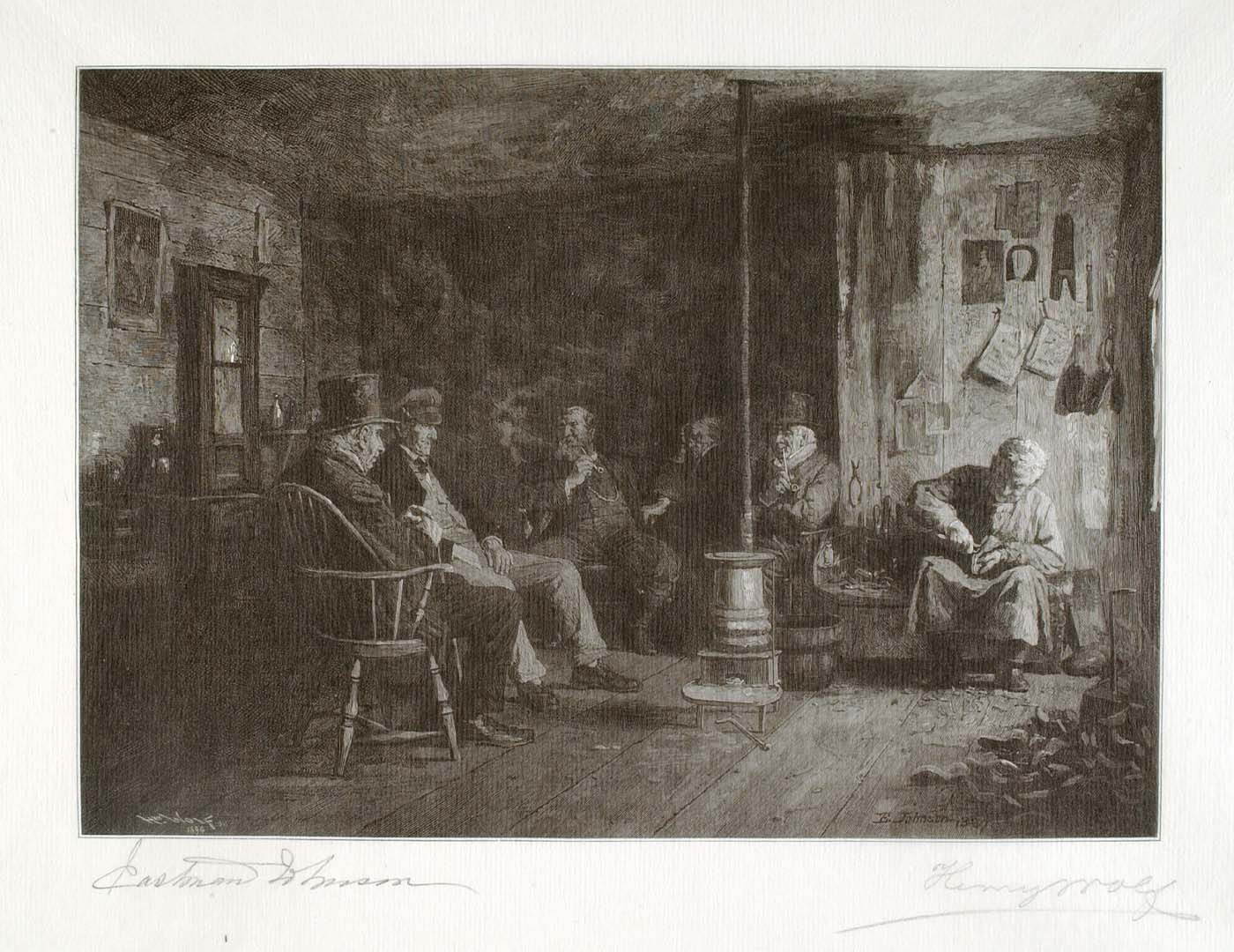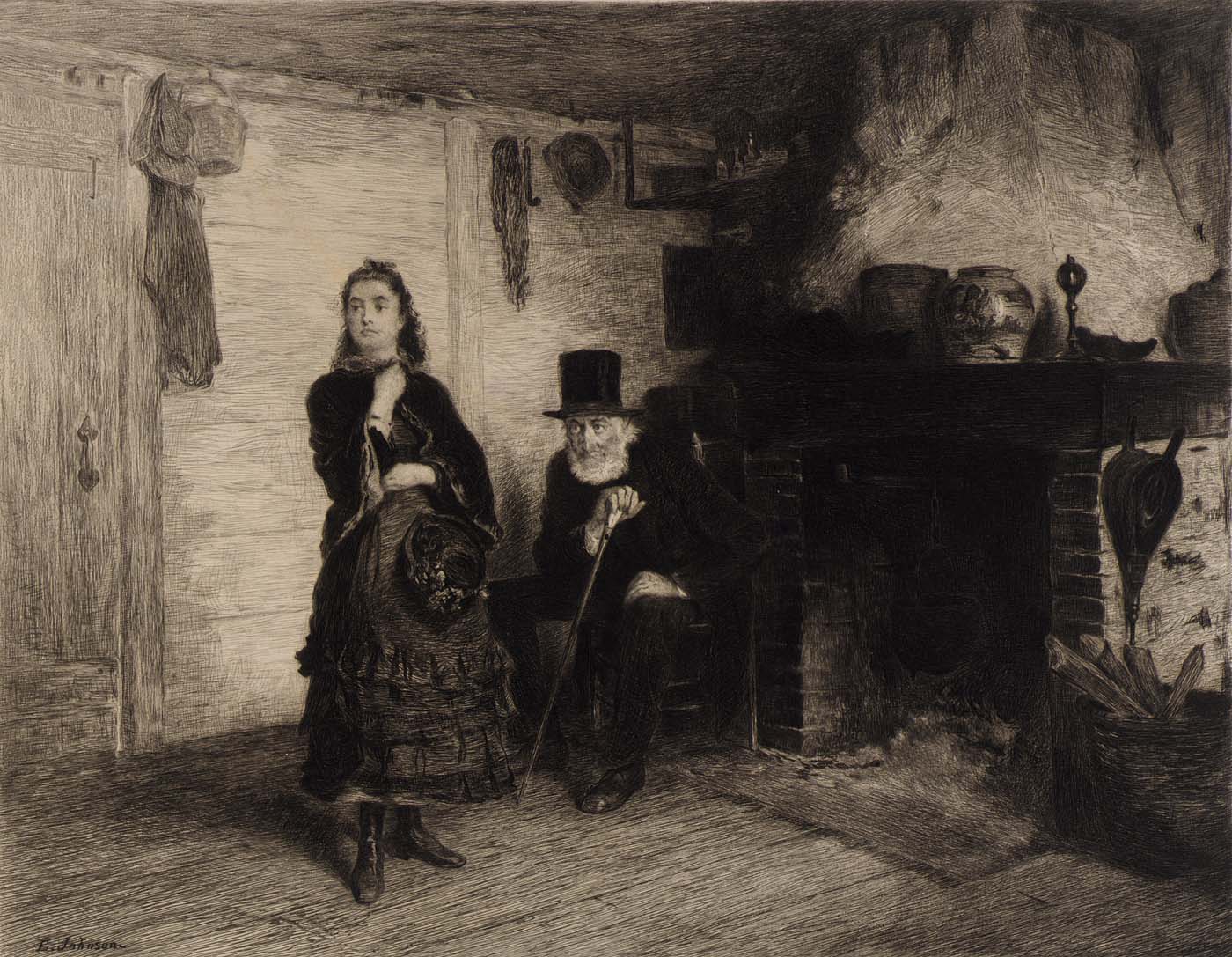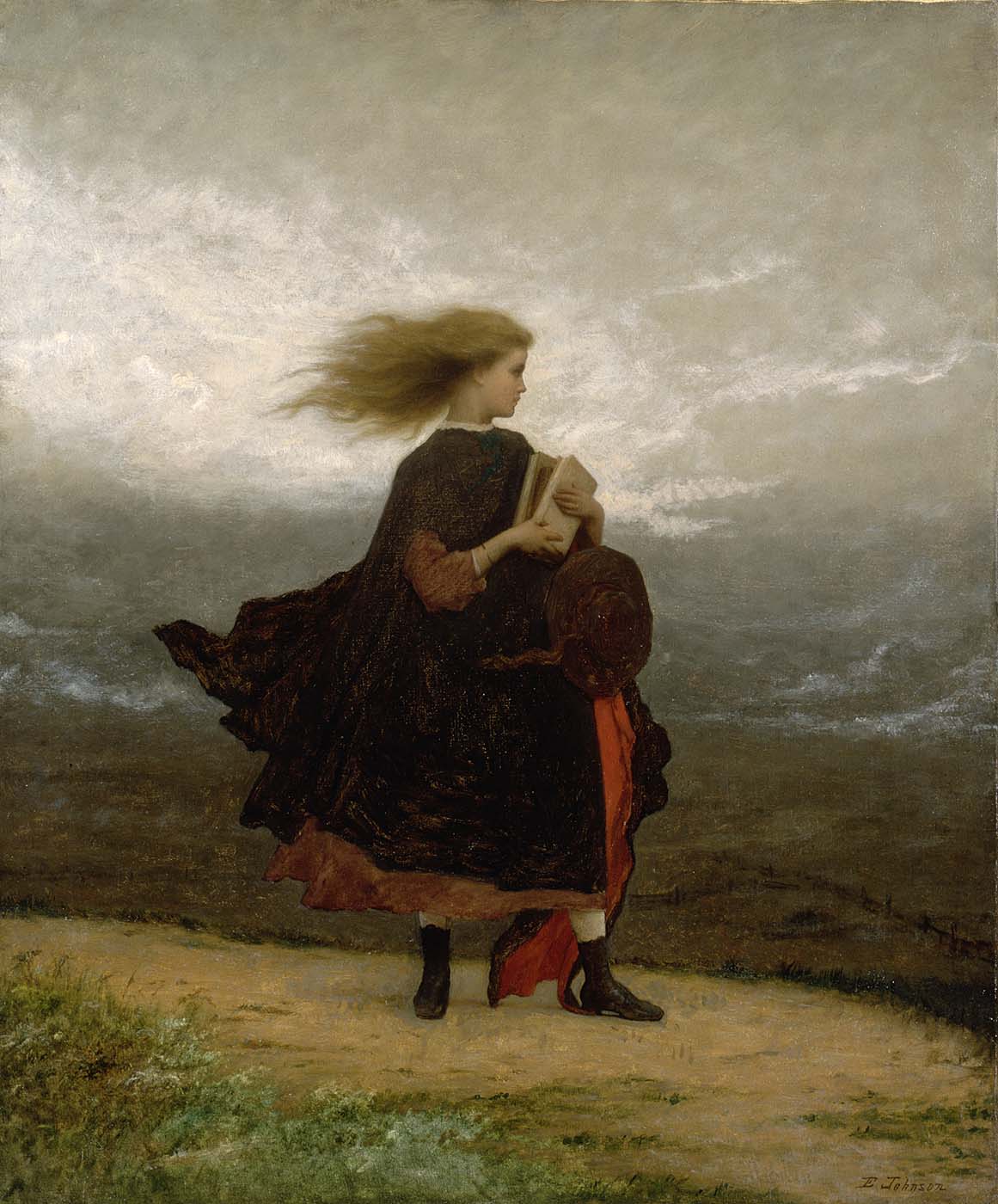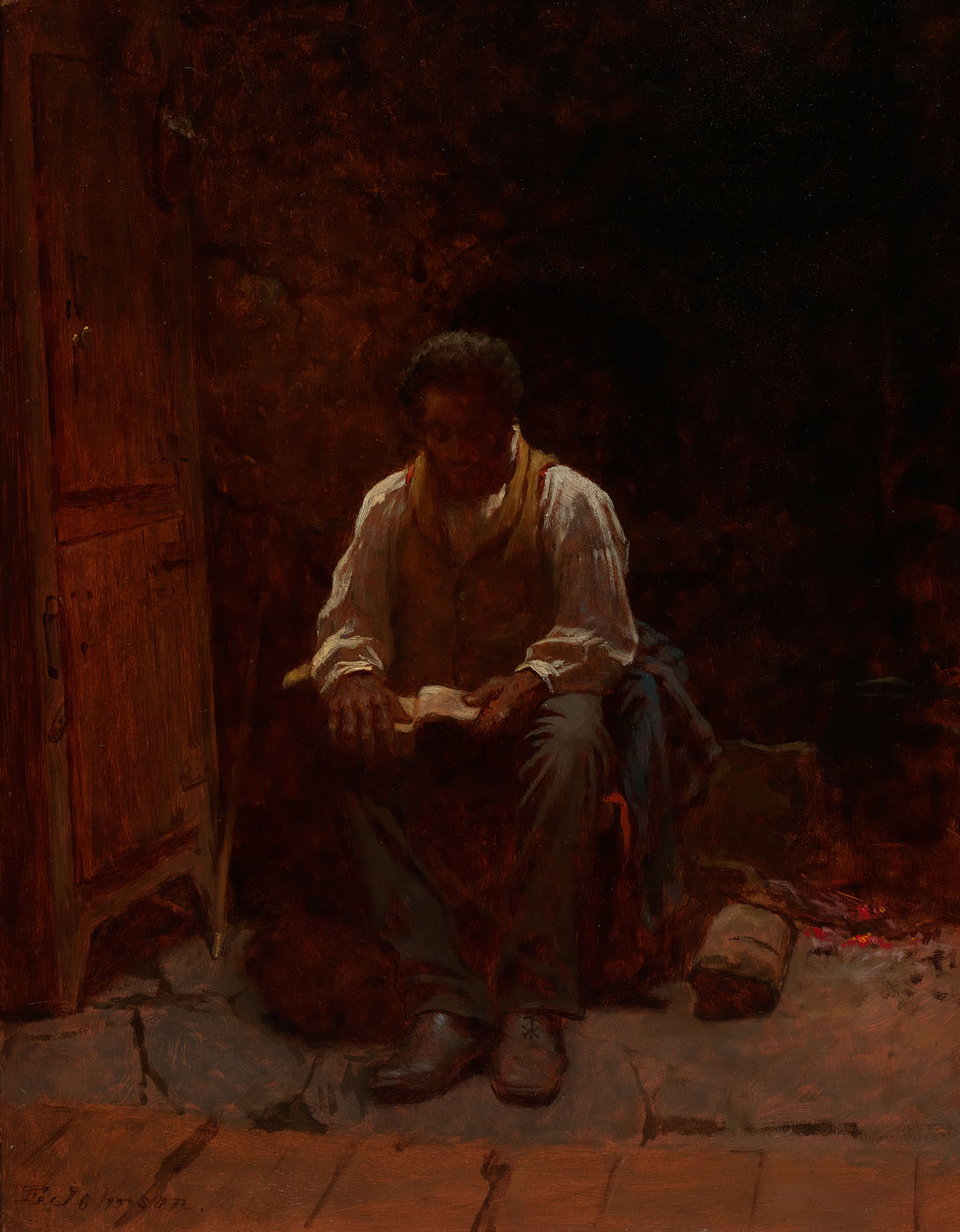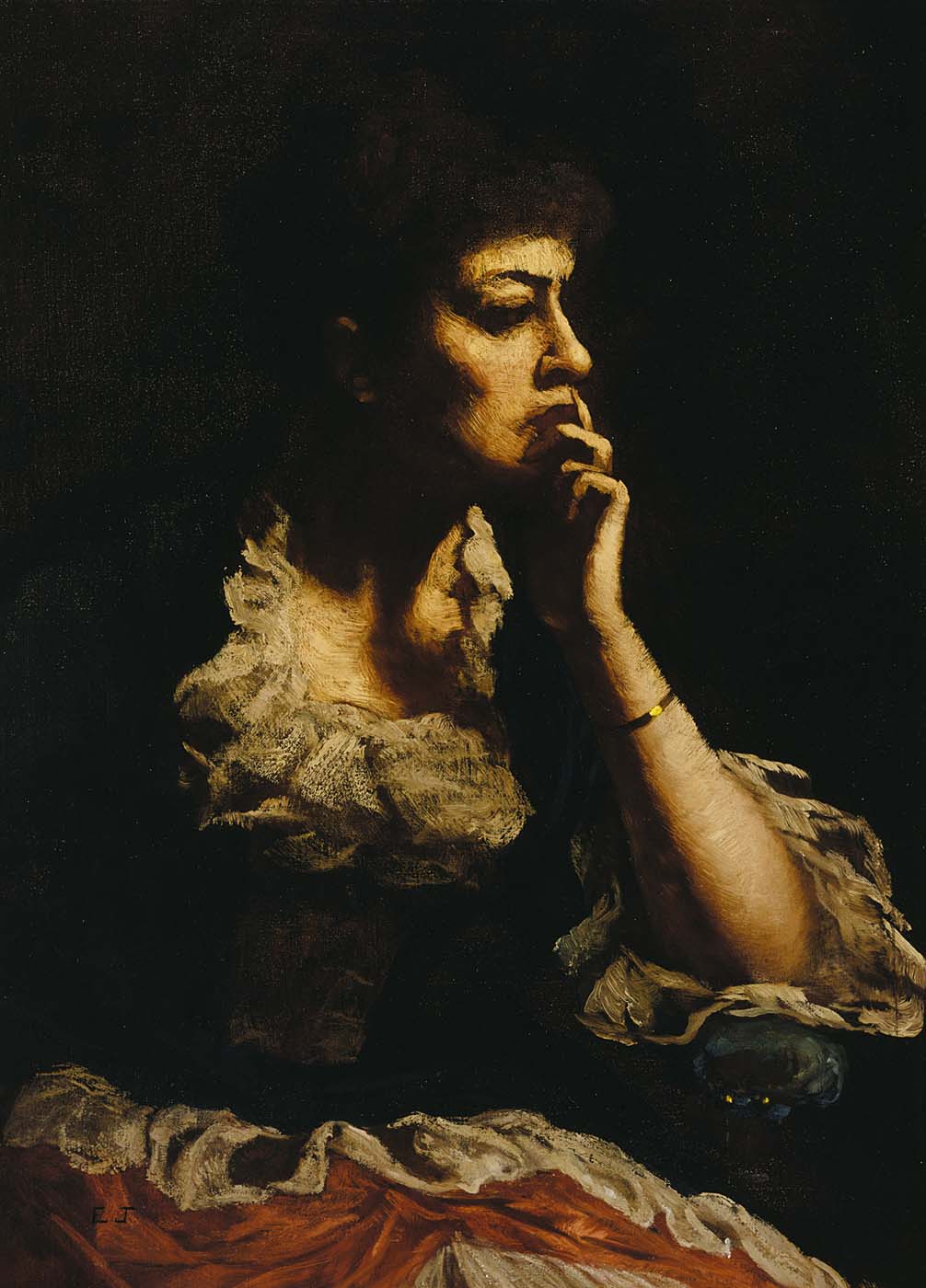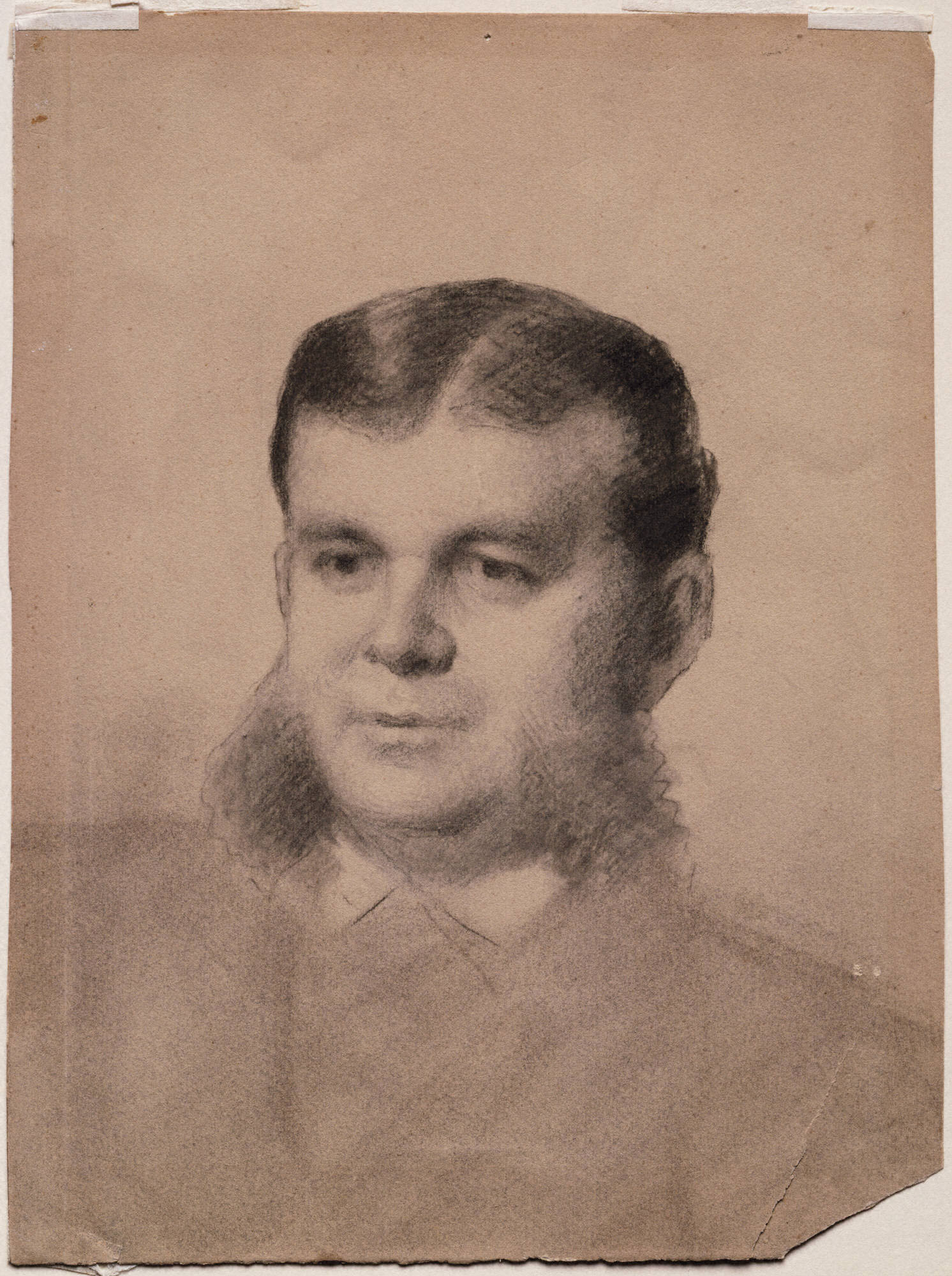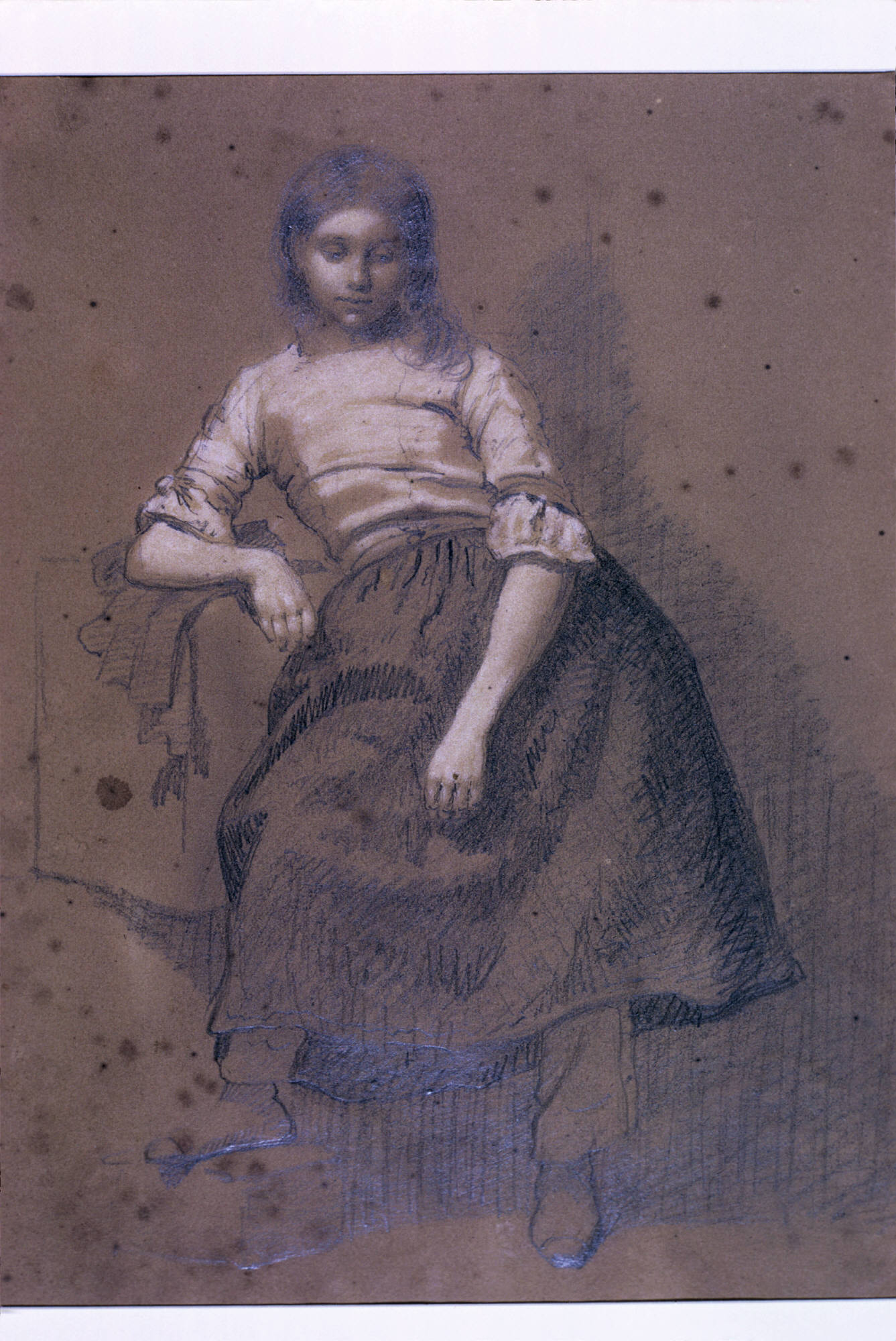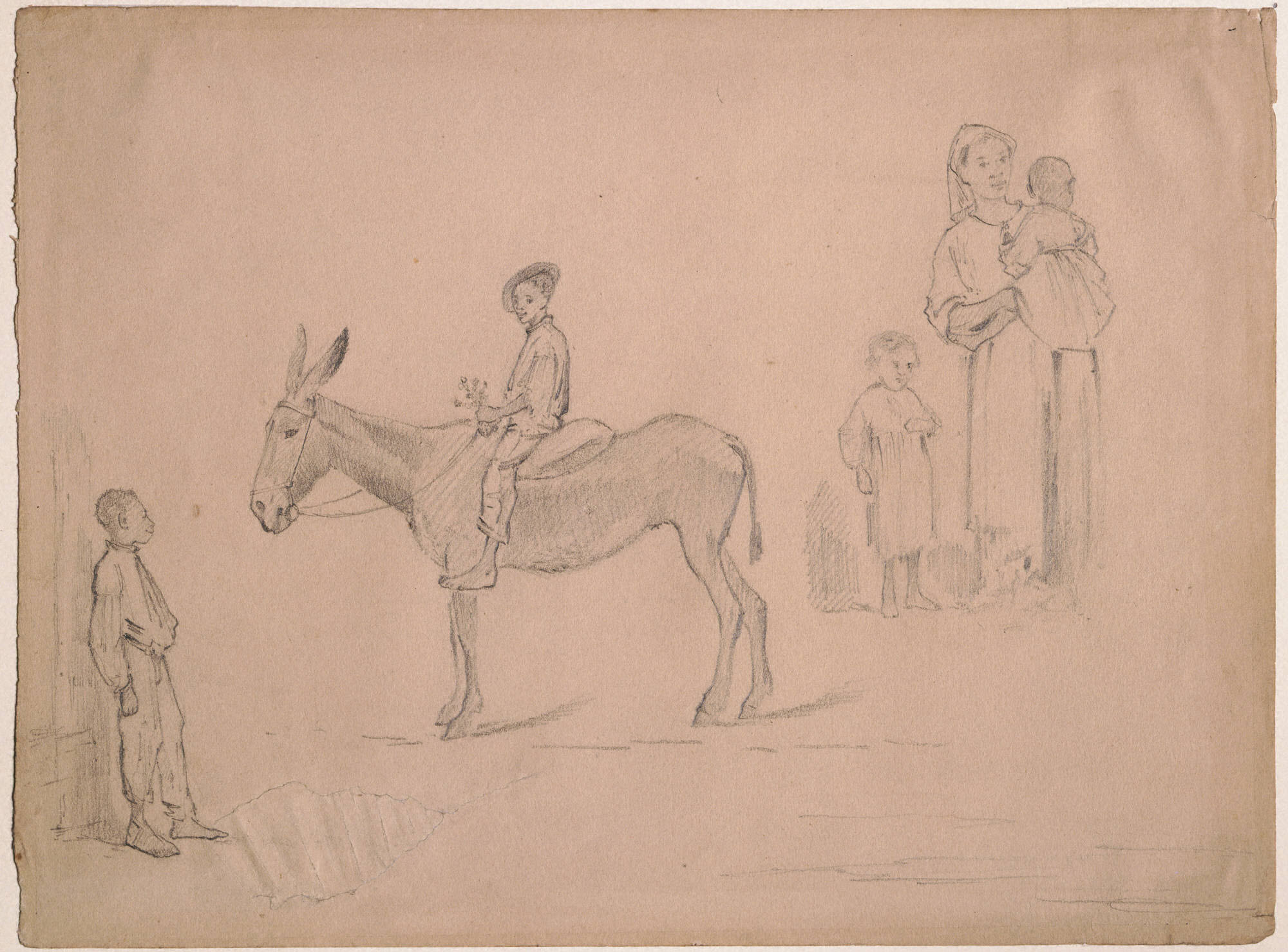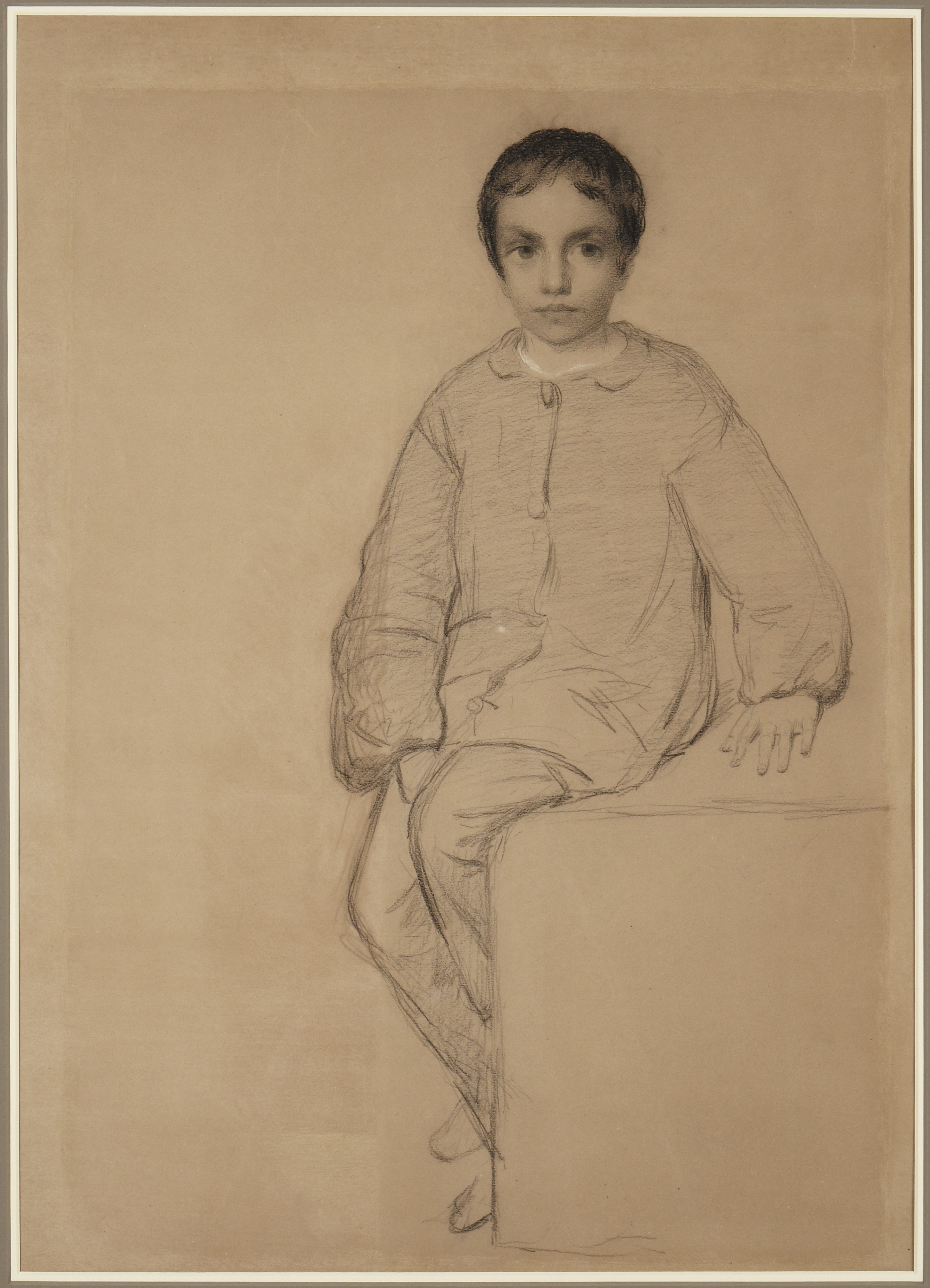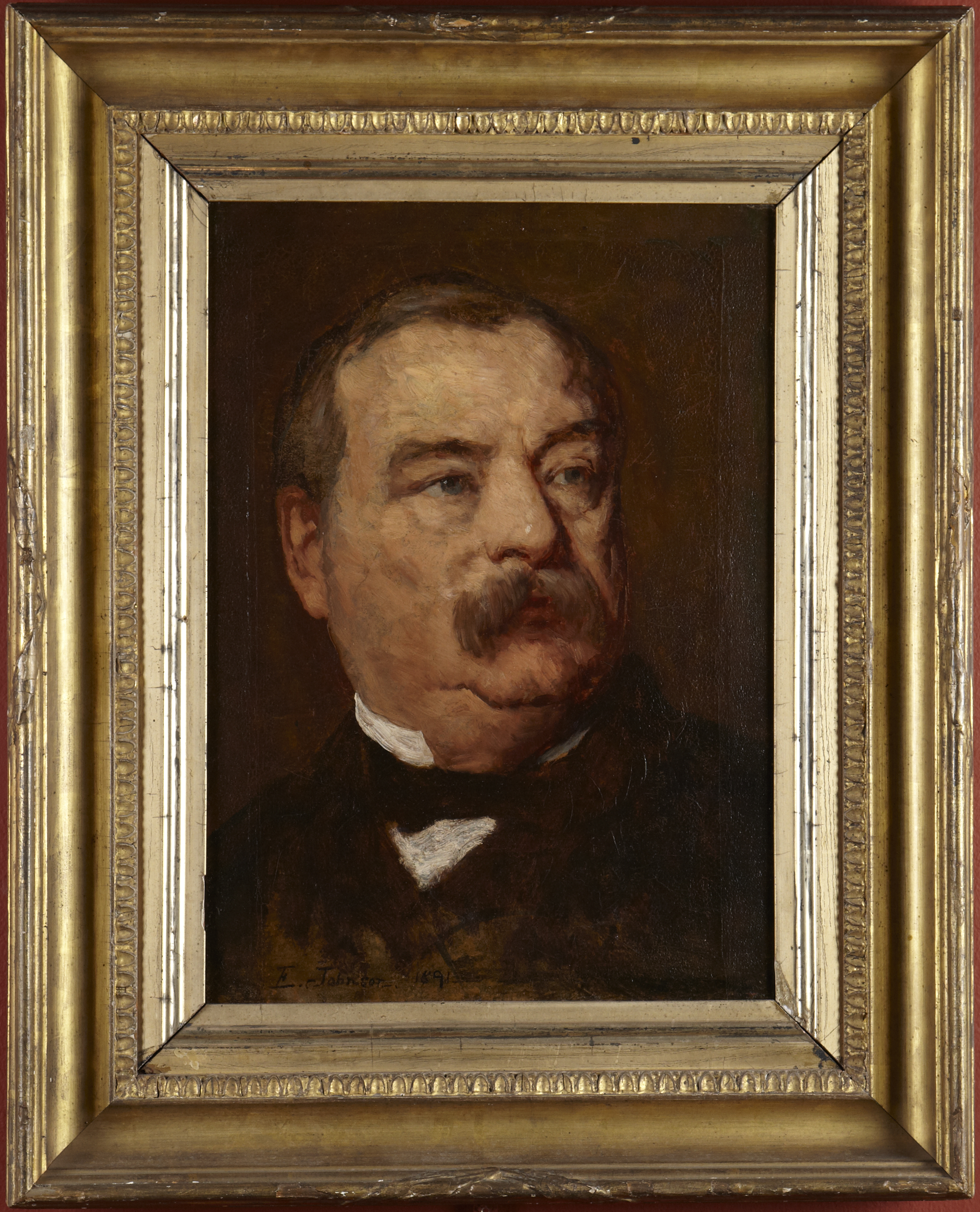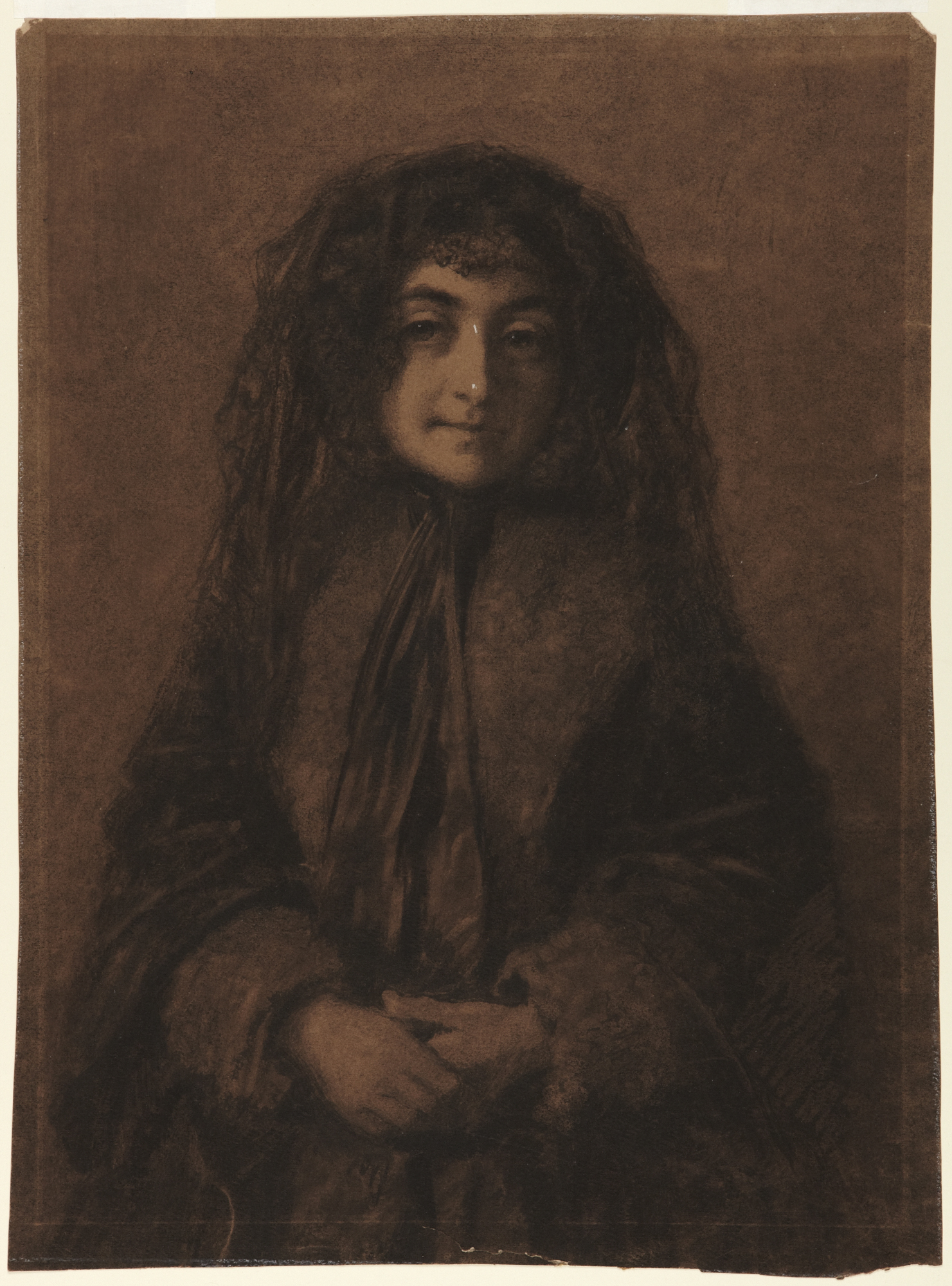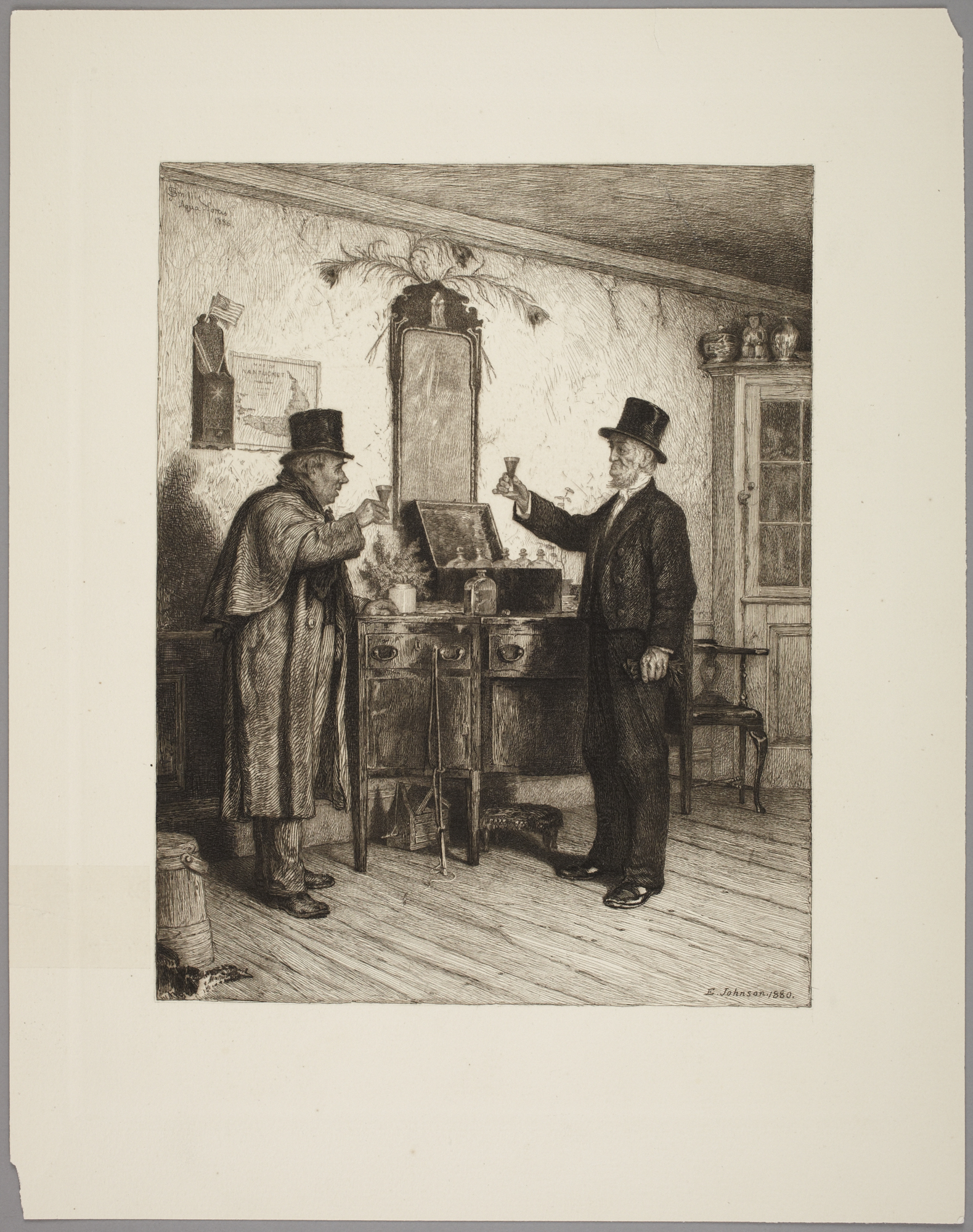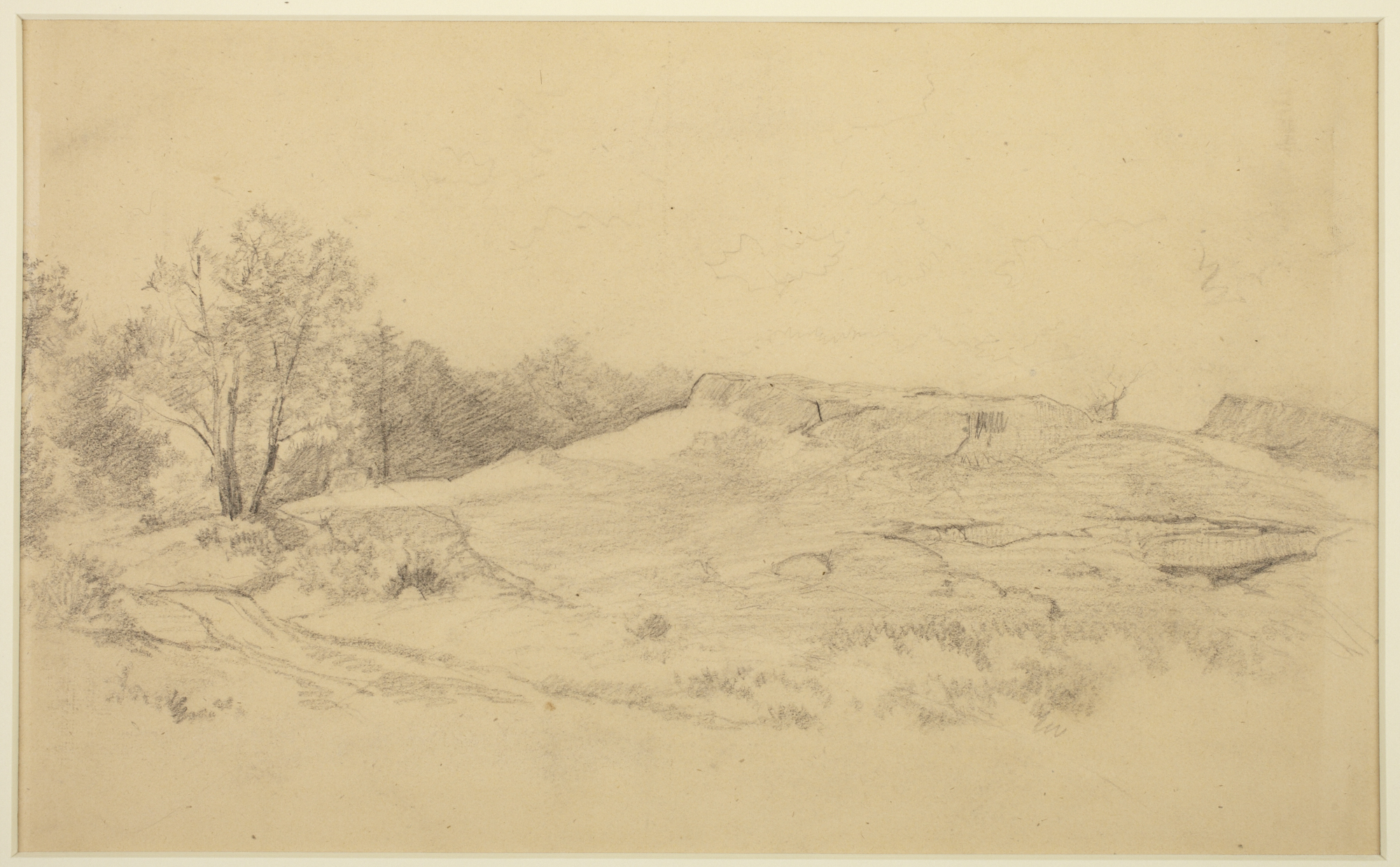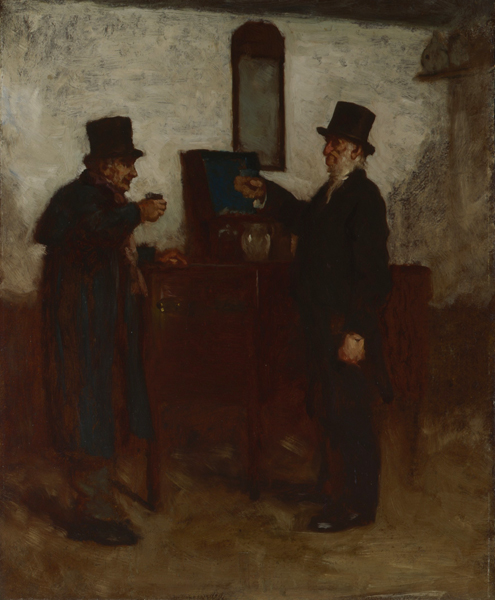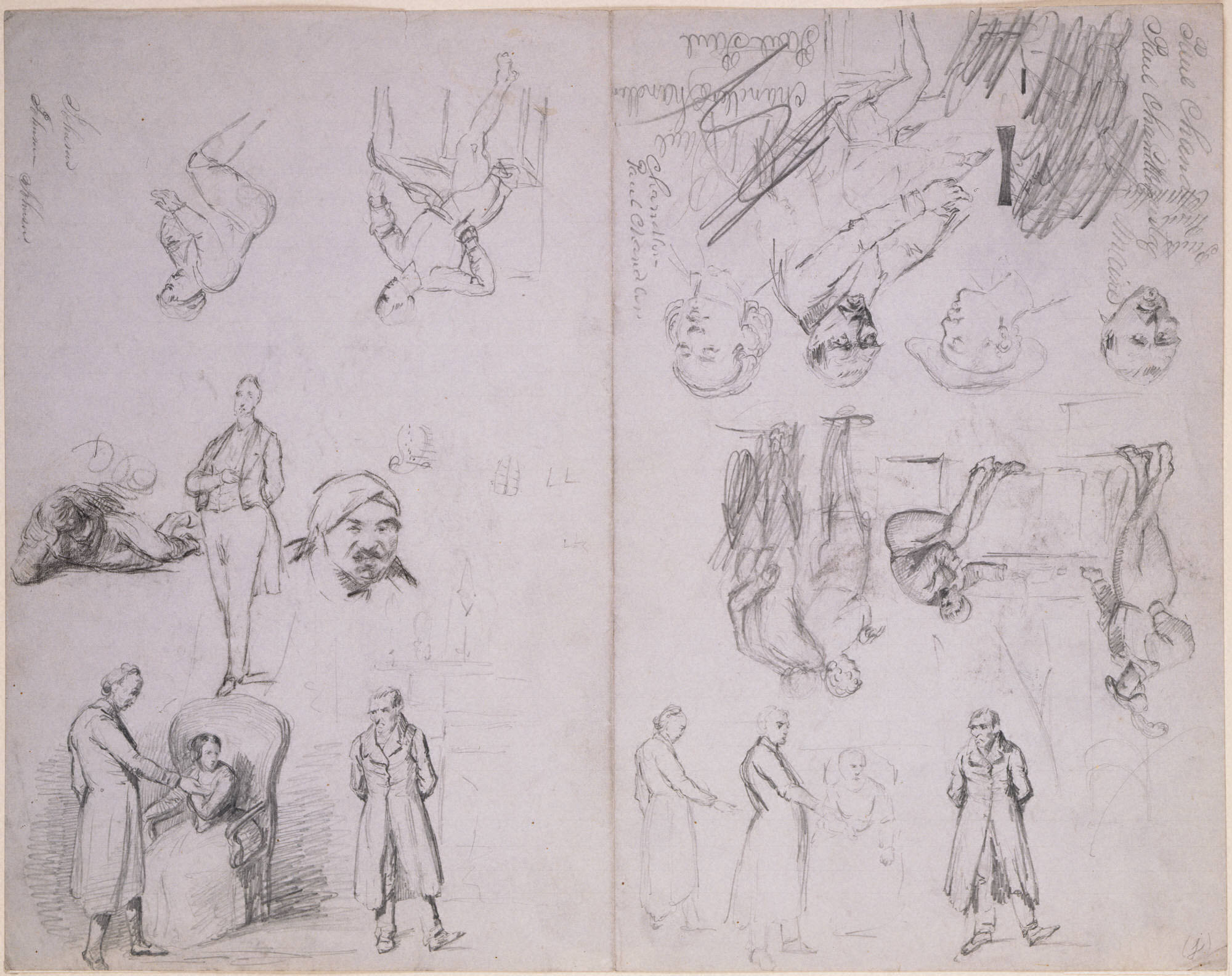Eastman Johnson
Born in Lovell, Maine, Eastman Johnson moved to Washington, D.C., in 1845, when his father accepted a major clerkship in the Navy Department. Eastman established his portrait career by drawing members of the Maine legislature and U.S. Senators. More formal training commenced at the Royal Academy in Düsseldorf and with history painter Emanuel Leutze. This was followed by four years in The Hague, the offer of an appointment as court painter to William III of Holland, and a few months with Thomas Couture in Paris in 1855. Johnson subsequently became a successful portrait and genre painter in New York, as distinguished as many of his patrons.
In addition to painting New York subjects, Johnson established a studio on Nantucket, shortly after his marriage in 1870, where he lived and worked during summers over the course of thirty years. His paintings of island cranberry harvests and maple sugar gathering in Maine transformed these familiar scenes into fine and popular art, creating a national awareness of extant but vanishing rural life in these New England places. The popularity of Johnson's scenes of rural labor in New England marks them as part of the widespread impulse to assign values identified with New England—independence, resourcefulness, devotion to hard work—to the entire nation.
William H. Truettner and Roger B. Stein, editors, with contributions by Dona Brown, Thomas Andrew Denenberg, Judith K. Maxwell, Stephen Nissenbaum, Bruce Robertson, Roger B. Stein, and William H. Truettner Picturing Old New England: Image and Memory (Washington, D.C.; New Haven, Conn; and London: National Museum of American Art with Yale University Press, 1999)
Selected Images of Eastman Johnson
Objects at Dallas Museum of Art (1)
Objects at Indianapolis Museum of Art at Newfields (1)
Objects at The Amon Carter (2)
Objects at Crystal Bridges Museum of American Art (2)
Objects at Archives of American Art (3)




















